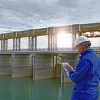219 careers found.
Health information managers combine knowledge of healthcare processes, health records and administration, information management and human resource management to provide services that meet the medical, legal, ethical and administrative requirements of the healthcare system.
Health promotion practitioners plan projects to improve the health of individuals and the community.
Historians conduct research into past human activity, including the history of countries, organisations, periods of time, buildings, cultural heritage, particular events, people, and ideas or issues.
Home economists teach, inform and advise government, industry and the community in order to assist individuals to make better lifestyle choices.
Human resource managers plan, administer and review activities concerned with staff selection, training and development, conditions of employment and other staffing issues within an organisation.
Human resources officers provide administration services for the recruitment and employment of staff. In small organisations, human resources officers are usually responsible for all staffing matters. In large organisations they may specialise in a particular area such as recruitment, wages and entitlements or staff training.
Hydrologists measure, analyse and maintain the quantity and quality of water in rivers, lakes, stormwater and sewage. They use this information to plan and develop strategies for water conservation and the improvement of water quality.
Industrial designers create and produce designs for commercial, medical and industrial products. They also make models and prototypes of these designs for mass production. The products that industrial designers create cover a wide range of manufactured goods, from toys and toasters to furniture and heavy machinery. Some work is carried out on the development of new products. Other work is related to updating and improving the design of existing products.
Industrial engineers plan, organise, supervise and manage the operations of industries to ensure the economical, safe and effective use of materials, energy and people.
Industrial engineering technologists study and try to improve the quality and quantity of goods produced, and the efficiency and economics of production.
Information technology (IT) administrators manage the day-to-day operations of IT systems to ensure that the systems run effectively. IT administrators work with IT managers to make sure that the computer system provides sufficient computing power to deliver the desired level of business performance.
Information technology (IT) managers plan, administer and review the acquisition, development, maintenance and use of computer and telecommunications systems within organisations. The IT manager is often the most senior person in the IT department and in large organisations may be called the IT Director or Chief Information Officer.
Information technology (IT) support technicians provide technical advice and support to help people use computer software and hardware effectively.
Employers & associations:
Mainfreight
Instrument fitters assemble and install precise instruments that measure, indicate, transmit, record and control. Instrument fitters may specialise as camera repairers, scale adjusters or surgical instrument makers. Experienced instrument fitters may work with scientists to design, manufacture or modify laboratory equipment.
Intelligence analysts evaluate information from a variety of classified and unclassified sources. This information is often incomplete, contradictory and can vary widely in terms of reliability. Depending on their background and qualifications, an intelligence analyst may examine a diverse set of countries, issues (such as terrorism) and cultures. Intelligence analysts working for the Department of Defence specialise in a number of areas depending on their training, qualifications and agency employment.








